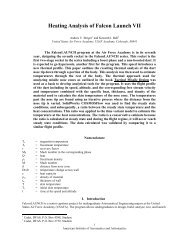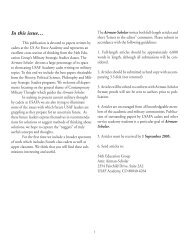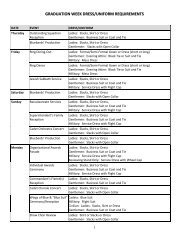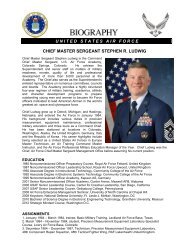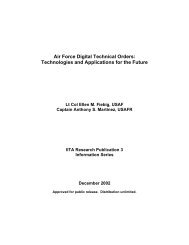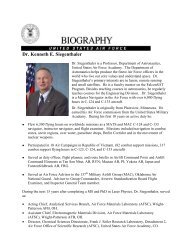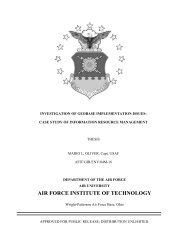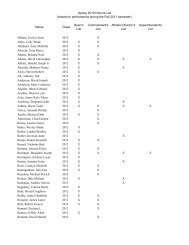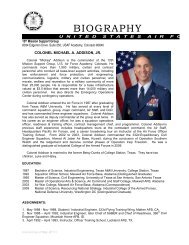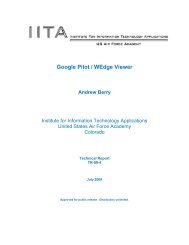the rollback of south africa's biological warfare program
the rollback of south africa's biological warfare program
the rollback of south africa's biological warfare program
Create successful ePaper yourself
Turn your PDF publications into a flip-book with our unique Google optimized e-Paper software.
In February 1996, <strong>the</strong> Mandela cabinet finally acted on <strong>the</strong> OSEO report,<br />
after 16 months <strong>of</strong> keeping it secret. This ruling gave OSEO investigators<br />
permission to follow <strong>the</strong> flow <strong>of</strong> funds overseas but did not agree to <strong>the</strong> request<br />
made by <strong>the</strong> Justice Ministry that <strong>the</strong> secrecy on <strong>the</strong> project, regulated by <strong>the</strong><br />
Protection <strong>of</strong> Information Act, be lifted. However, no one was charged<br />
immediately, and Project Coast’s debts <strong>of</strong> R22 million had already been<br />
written <strong>of</strong>f by <strong>the</strong> SANDF. In May, <strong>the</strong> Parliamentary Standing Committee on<br />
Public Accounts began its own investigations. However, this committee and a<br />
special parliamentary committee on Project Coast encountered resistance from<br />
SANDF chief, General Georg Meiring, who refused to release information<br />
about <strong>the</strong> CBW <strong>program</strong>. 176 Even though parliamentary committee sessions<br />
were held in camera, members were unable to learn many details about Project<br />
Coast. In August 1996, <strong>the</strong> special committee finally questioned Basson’s<br />
involvement with <strong>the</strong> privatization <strong>of</strong> RRL. Since this was almost a year after<br />
Project Coast’s debts had been written <strong>of</strong>f, it indicated how weak<br />
parliamentary oversight was in practice.<br />
The difficulties encountered by parliamentary committees to hear details<br />
<strong>of</strong> <strong>the</strong> military involvement in Project Coast reflects a transitional agreement<br />
reached by cabinet members <strong>of</strong> <strong>the</strong> Government <strong>of</strong> National Unity (GNU). The<br />
agreement, endorsed by President Mandela and his deputy presidents, Thabo<br />
Mbeki and F.W. de Klerk, supported General Meiring’s position that details <strong>of</strong><br />
Project Coast should remain secret and that an earlier cabinet decision to lift<br />
<strong>the</strong> secrecy from <strong>the</strong> project did not apply. This decision in part reflected a<br />
concern that full disclosure might compromise ongoing criminal investigations.<br />
Mandela’s spokesman, Parks Mankahlana explained in confirming Mandela’s<br />
support for Meiring’s position that, “an overall lifting can be considered once<br />
<strong>the</strong> OSEO investigation is over.... There is no intention to impose permanent<br />
secrecy on <strong>the</strong> matter.” 177 The decision to withhold was taken due to concerns<br />
<strong>of</strong> <strong>the</strong> GNU, <strong>the</strong> new SANDF leadership, and former SADF generals, as well<br />
68




